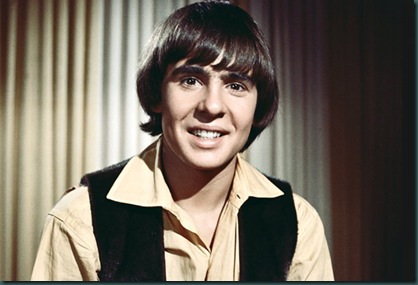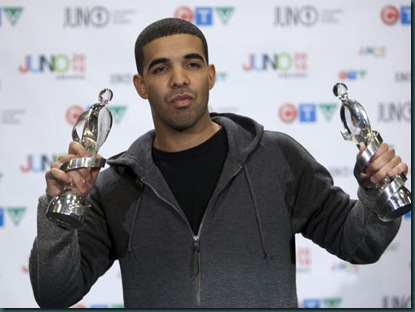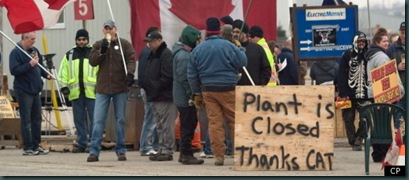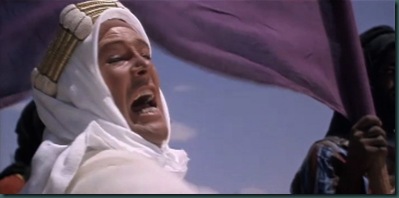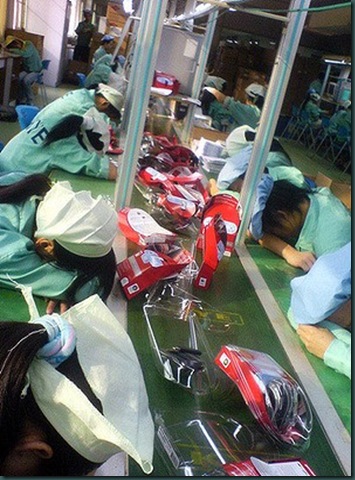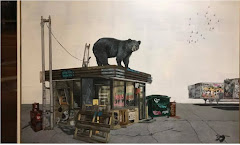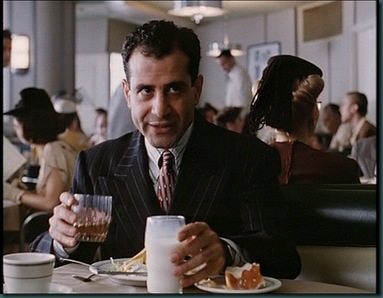
There’s a scene in the opening moments of the Coen brothers semi-masterpiece, “Barton Fink” where Fink (the writer) goes to see studio executive Ben Geisler. Their conversation begins thus:
- Geisler: Ever act?
- Barton: Huh? No, I'm…
- Geisler: We need Indians for a Norman Steele western.
- Barton: I'm a writer.
- Geisler: Think about it, Fink. Writers come and go; we always need Indians.
“Barton Fink” is one in a long parade of films satirizing how movies get made. Every working writer has a favorite in the genre.
That’s because we’ve all been party to studio or network meetings equally as ludicrous and watched cherished projects fail in development while the execs shepherding us green-light something of awesome ineptitude and loathsome bad taste.
And so we repair our rejections with laughter, healing by realizing we’re far from alone in defeat while enjoying the insider truths of “The Player”, “Adaptation” or “Get Shorty”.
In time, we get back in the saddle, knowing there are truly talented development people in many of those executive suites and this time we might get lucky and end up paired with one.
But even then, another of Ben Geisler’s lines echoes, the exec’s answer to Fink’s question about where to find a fellow writer…
Geisler: Jesus, throw a rock in here you’ll hit one. And do me a favor, Fink -- throw it hard!
Deep down we writers sense that they don’t really like us.
For all the platitudes about the primacy of “The Word” there is a palpable resentment toward those who can actually access it.
Maybe that comes from too many long weekends lost to a pile of mediocre pilot scripts. Maybe it’s never getting a shared credit despite all the notes and spit-balling plausible act endings.
But writers often suspect the executive class would prefer doing without us if they had their druthers.
Yet despite that resentment, almost all network and studio execs will take writers into their confidence to rant on somebody they despise even more –- actors.
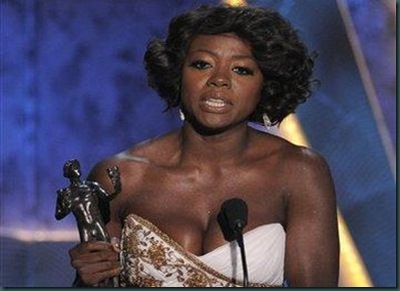
For every Viola Davis heartfelt and inspirational “Dream Big. Dream Fierce.” there are a thousand stories execs slaver to share –- about the ones who are “difficult”, “certifiable”, “impossible to satisfy” or “still in the closet”.
The tales reported on TMZ pale to insignificance when compared to what a studio or network executive will share after a sip of Grey Goose.
In their eyes, Charlie Sheen is the norm not the exception.
And maybe the resentment of actors is honestly earned as well.
Maybe it’s because the audience embraced them even though the producers couldn’t get their hair right. Maybe they made lines work that had been officially branded “stilted” or “on the nose”.
You get the definite impression they’d be happier if they didn’t have to deal with actors at all.
And, as the 20th Century came to a close, they finally got their wish in the form of “Reality” television. But that led to an even larger revelation about the workings of the studio/network mind.
For the disdain for creatives was now clearly extended to contestants in what became a veritable open season of humiliation and degradation.
Simon Cowell became the model for “judges” empowered to ridicule people whose worst crime was not knowing they weren’t as talented as their family and friends had always insisted.
People were broken both emotionally and physically by stunts and survival games, mismatched roommates and chatty lovers.
No marital secret, private dream or unspoken desire was spared as network executives worked their way to the bottom of the morality barrel in search of higher ratings.
Since the invention of show business, it’s been well known that you don’t go broke underestimating the intelligence of the audience and that there’s a sucker born every minute.
But as the 21st century dawned, it seemed like television executives had decided they must live by those two adages instead of rise above them.
Little wonder that to date a dozen reality show contestants have subsequently committed suicide – including one in Canada.
There are some who feel the coarsening of network programming can be traced to reality shows, their success giving executives the confidence to program series in which heroes resorted to torture (“24”) or were revered for their ability to purchase hookers (“Two & 1/2 Men”).
And then something happened this week to make me realize it is someone else who actually tops the Hollywood hit list.
The audience.
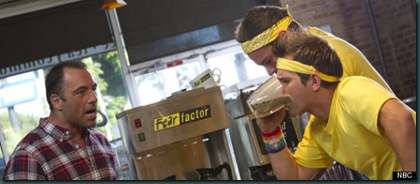
As the audience abandons network programming in droves, the people running the show are exposed as either having no taste or completely caught up in a blood frenzy of depravity.
It’s as if they’ve become that last bad comic in a Comedy Club. The one tasked with insulting the remaining patrons until they finally leave and the place can close.
A few days ago, gossip site TMZ provided details on an upcoming episode of NBC’s “Fear Factor” which was to feature contestants forced to down a cup of Donkey Semen followed by a Mule Urine chaser in order to remain in the running for a $50,000 pay-day.
The episode, titled “Hee-Haw, Hee-Haw” had already been network developed, vetted and shot. The final cut had been screened in Burbank, given the Peacock net’s seal of approval and scheduled.
At no point did anybody seem to question whether any lines had been crossed.
But no sooner had the show premise been publicized than someone at NBC’s ownership group, Comcast, made a call to NBC’s head office.
Weekend “discussions” were held and the episode was pulled.
A short time later, the network threatened to sue a pair of contestants who’d gone public with further details of the shoot, recounted here…
You have to wonder how far gone the folks who decide what airs at NBC really are that nobody considered Jizz-gargling might be an inappropriate Prime Time activity.
Or what might have transpired if somebody from ownership hadn’t called to ask what the definition of “entertainment” really was these days.
I know it could be argued that the networks are in a difficult position right now. Their cable competitors get away with language, visuals and subject matter deemed inappropriate for the big four.
Except, I can’t think of any example where a cableco has sunk quite this low.
So maybe the reason so many other NBC series are struggling, some even finishing behind Spanish language soap operas, is not merely that their development people have run out of ideas.
Could it be that what we’re really seeing are people who hate having to serve the needs of an audience in the same way as they hate having to serve those of writers and actors?
Who does that audience think they are!?! What right do they have to be as single-minded as writers or as demanding as actors?
Don’t those people watching know who’s really in charge here? Have they forgotten who are the cowboys and who are the Indians?
